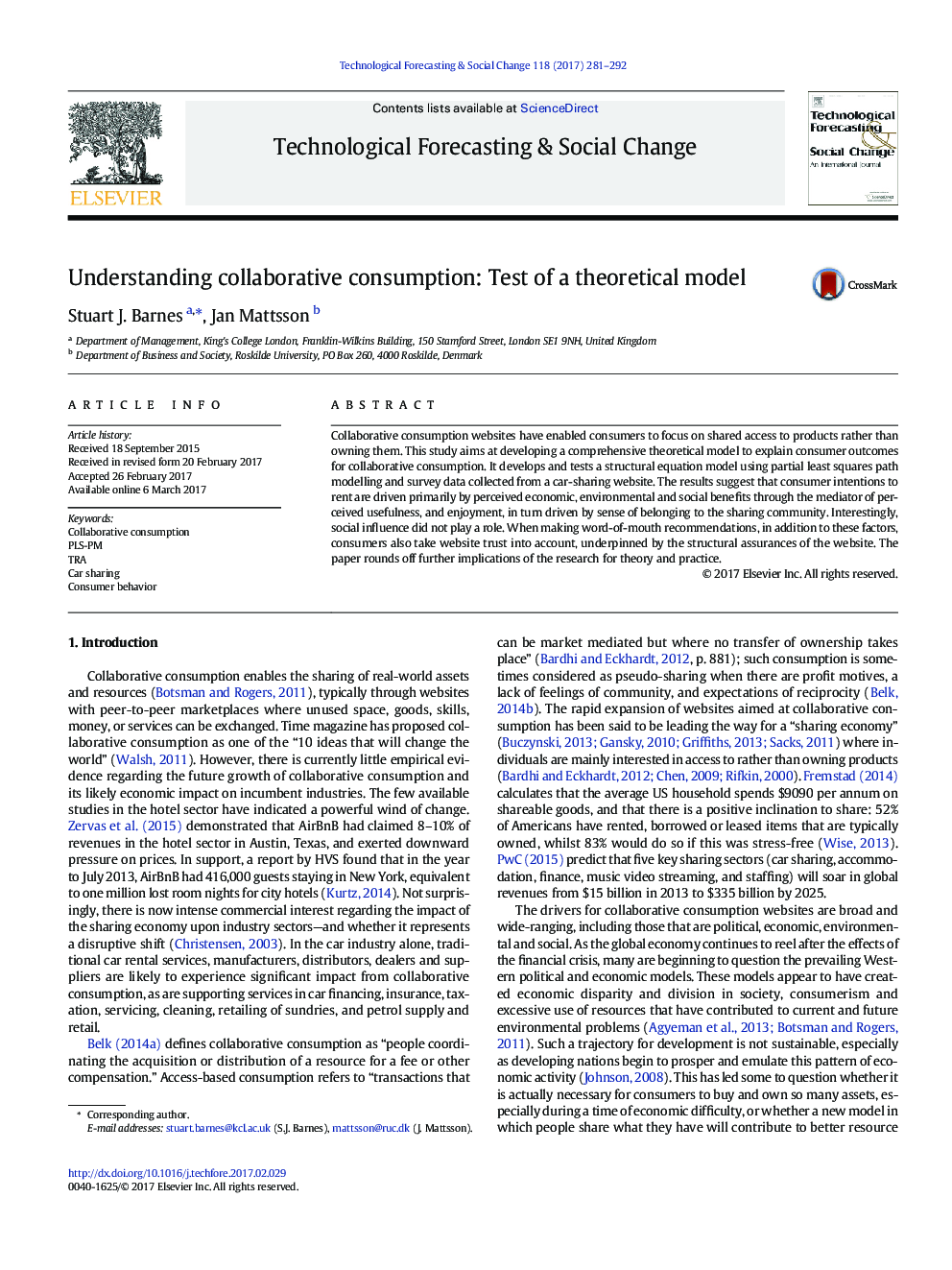| Article ID | Journal | Published Year | Pages | File Type |
|---|---|---|---|---|
| 5037052 | Technological Forecasting and Social Change | 2017 | 12 Pages |
â¢Model developed to explain sharing behavior based on the theory of reasoned actionâ¢Model tested using survey data, PLS path modeling, and bootstrap mediation testsâ¢Renting intention driven by perceived usefulness and enjoymentâ¢Intention to recommend also influenced by trust, driven by structural assurancesâ¢Perceived usefulness mediates impact of three types of benefits on both intentions.
Collaborative consumption websites have enabled consumers to focus on shared access to products rather than owning them. This study aims at developing a comprehensive theoretical model to explain consumer outcomes for collaborative consumption. It develops and tests a structural equation model using partial least squares path modelling and survey data collected from a car-sharing website. The results suggest that consumer intentions to rent are driven primarily by perceived economic, environmental and social benefits through the mediator of perceived usefulness, and enjoyment, in turn driven by sense of belonging to the sharing community. Interestingly, social influence did not play a role. When making word-of-mouth recommendations, in addition to these factors, consumers also take website trust into account, underpinned by the structural assurances of the website. The paper rounds off further implications of the research for theory and practice.
